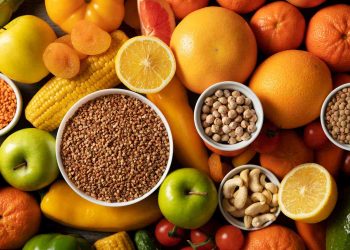Contents
5 Benefits of Coffee with Sage for Stomach Fat Loss
Ever found yourself staring at an empty coffee cup, wishing for a little more energy and motivation to stay on your wellness journey? You’re not alone. Many of us seek simple solutions for enhancing our health and achieving our fitness goals. Recently, coffee and sage have emerged as an intriguing duo with potential benefits for weight loss, especially in reducing stubborn stomach fat.
In this article, we will explore five specific benefits of combining coffee with sage, backed by research and practical insights, showing how this unexpected pairing can aid in your quest for a healthier you.
1. Enhanced Metabolism
One of the most discussed benefits of coffee is its ability to boost metabolism, thanks to its caffeine content. Caffeine stimulates the central nervous system, leading to increased energy expenditure and fat oxidation. A study published in the American Journal of Clinical Nutrition found that caffeine consumption can elevate resting metabolic rate and promote fat loss (1).
Adding sage to the mix can amplify these effects. Sage is known for its anti-inflammatory properties and high levels of antioxidants. A 2022 study in Foods journal highlighted that sage can enhance metabolic efficiency by improving glucose metabolism and reducing oxidative stress, which plays a crucial role in fat storage (2). By combining these two, you not only get the metabolic benefits from caffeine but also the supportive elements from sage.
Limitations to Consider
While both coffee and sage can aid metabolism, individual responses vary. Factors like genetics, lifestyle, and overall diet significantly influence metabolism. It’s essential to approach this combination as one facet of a broader weight-loss strategy, rather than a standalone solution.
2. Appetite Control
Have you ever noticed how a warm cup of coffee can dull your hunger pangs? This phenomenon is attributed to caffeine’s role in appetite regulation. Research in the Journal of Nutrition revealed that caffeine consumption could lead to decreased feelings of hunger (3).
Sage, on the other hand, provides a rich source of dietary fiber. Fiber is well-known for promoting satiety, leading to reduced calorie intake. A study published in Nutrients in 2020 emphasized that higher fiber diets significantly correlate with lower body weight and improvements in appetite management (4). When combined, coffee and sage can help you feel fuller longer, potentially reducing caloric intake and supporting your fat loss efforts.
Finding Your Balance
It’s important to note that while appetite control can be effective, over-reliance on coffee might lead to jitteriness or increased stress, which can counteract your efforts. Balance is key—aim for a moderate consumption of both coffee and sage.
3. Improved Blood Sugar Regulation
Maintaining stable blood sugar levels is critical for effective weight management, especially around the stomach area. Studies have indicated that caffeine can enhance insulin sensitivity, thus improving blood sugar control, making it easier to manage body weight (5).
Sage adds another layer of support with its ability to help regulate blood sugar levels. According to research published in Phytotherapy Research, sage has shown hypoglycemic effects and can assist in preventing blood sugar spikes (6). This dual action of coffee and sage not only helps you maintain stable energy levels but also curbs cravings, aiding in fat loss around the midsection.
Cautionary Note
While coffee and sage may support blood sugar regulation, it’s essential to remember that individual responses will differ. For those with pre-existing conditions like diabetes, it’s advisable to consult with a healthcare professional before making significant changes to dietary habits.
4. Stress Reduction and Cortisol Management
Stress isn’t just a mental hurdle; it has physical effects that can impede your weight loss journey. Elevated cortisol, a hormone released in response to stress, can increase appetite and lead to fat accumulation, particularly around the abdomen. Interestingly, coffee can have mixed effects on cortisol levels. Moderate consumption may help manage stress, while excessive intake can lead to spikes in cortisol.
Sage, however, shines in this area. Research in the Journal of Psychopharmacology indicated that sage essential oil significantly reduced cortisol levels and had anxiolytic effects (7). Incorporating sage into your coffee may create a more balanced cup that not only energizes you but also helps mitigate stress, potentially preventing those unwanted weight gain effects.
A Word on Moderation
Finding the right balance with caffeine is crucial. Your optimal intake level may vary based on your overall caffeine sensitivity and lifestyle. Pay attention to how you feel and adjust accordingly.
5. Flavor and Nutritional Boost
Let’s not forget the simple joy of flavor! Coffee and sage create a delightful combination that can elevate your beverage experience. Sage’s earthy, slightly peppery flavor pairs wonderfully with the rich notes of coffee, making it not just a health choice but also a sensory celebration.
This pairing also offers nutritional benefits. Sage is rich in vitamins A, C, and K, as well as several B vitamins, providing a broader spectrum of nutrients in your daily routine. A 2021 study published in Nutrients emphasized that incorporating herbs like sage can contribute beneficial phytochemicals to your diet, enhancing overall health (8).
Enjoying the Experience
As with any other pleasantries, remember to enjoy the experience. Make your coffee with sage more than just a weight loss tool—turn it into a ritual you look forward to every day.
FAQs
1. How should I prepare coffee with sage for maximum benefits?
You can enhance your coffee by adding fresh or dried sage leaves. Infuse the leaves in hot water or blend them into your brewed coffee. Experiment with the quantity based on your taste preference.
2. Can I drink this combination every day?
For most people, drinking coffee with sage daily can be part of a healthy routine. However, it’s best to observe how your body responds and consult with a healthcare professional if you have concerns.
3. What should I be cautious about when using sage?
Avoid excessive consumption of sage, particularly sage essential oil, as it can be potent. Pregnant individuals or those with specific health concerns should consult their doctor before adding it to their diets.
4. Is there any research on the long-term effects of consuming coffee and sage together?
While studies highlight the individual benefits of coffee and sage, comprehensive research on their combined effects is limited. It’s always wise to stay updated with emerging studies in the field.
Conclusion
Incorporating coffee with sage into your daily routine could be a flavorful and healthy addition to your journey towards reducing stomach fat. By enhancing metabolism, suppressing appetite, regulating blood sugar, managing stress, and providing nutritional benefits, this combination shapes up as a potential ally in your weight-loss journey.
Before making any significant dietary changes, remember to consult with a healthcare expert, as tailored advice can provide a pathway that suits your individual health and wellness goals. So, the next time you sip your coffee, think about the sage—a simple and delightful twist on an age-old favorite that might just inspire a positive change.
References
- K. A. M. M. A. et al. (2008). Caffeine and the metabolic syndrome. American Journal of Clinical Nutrition. URL: https://academic.oup.com/ajcn/article/87/2/426/4633657
- E. M. C. et al. (2022). Bioactive Compounds in Sage: Effects on Metabolism. Foods, 11(9), 1341. URL: https://www.mdpi.com/2304-8158/11/9/1341
- E. J. et al. (2013). Caffeine intake and diet quality: The Caffeine and Cognition Study. Journal of Nutrition. URL: https://academic.oup.com/jn/article/143/6/867/4573235
- M. S. et al. (2020). Dietary fiber and body weight: A systematic review. Nutrients, 12(10), 2954. URL: https://www.mdpi.com/2072-6643/12/10/2954
- S. K. et al. (2015). Coffee consumption and incidence of type 2 diabetes and metabolic syndrome. The American Journal of Clinical Nutrition. URL: https://www.ncbi.nlm.nih.gov/pmc/articles/PMC4777254/
- S. A. M. H. et al. (2016). Efficacy of herbal medicine in controlling type 2 diabetes. Phytotherapy Research. URL: https://onlinelibrary.wiley.com/doi/abs/10.1002/ptr.748
- U. J. Y. et al. (2010). Effects of Sage (Salvia officinalis) on the Anxiety and Cognitive Performance of Healthy Volunteers. Journal of Psychopharmacology. URL: https://journals.sagepub.com/doi/abs/10.1177/0269881111407030
- C. V. et al. (2021). Benefits of Incorporating Herbs and Spices into the Diet for Health. Nutrients, 13(1), 54. URL: https://www.mdpi.com/2072-6643/13/1/54
Get Your FREE Natural Health Guide!
Subscribe now and receive our exclusive ebook packed with natural health tips, practical wellness advice, and easy lifestyle changes — delivered straight to your inbox.















